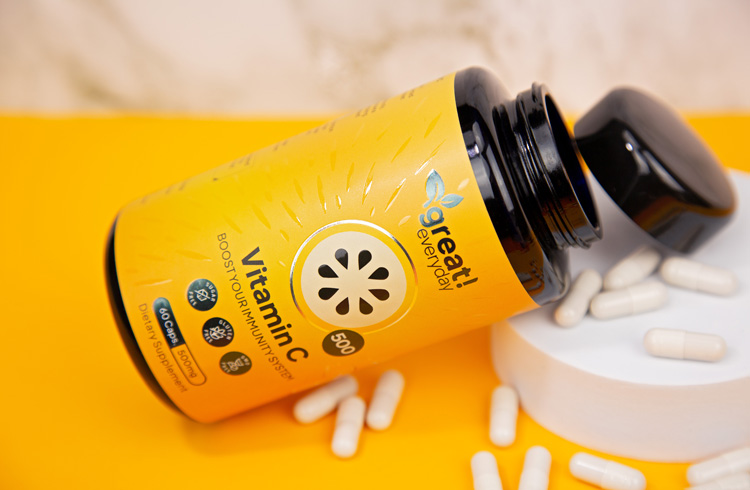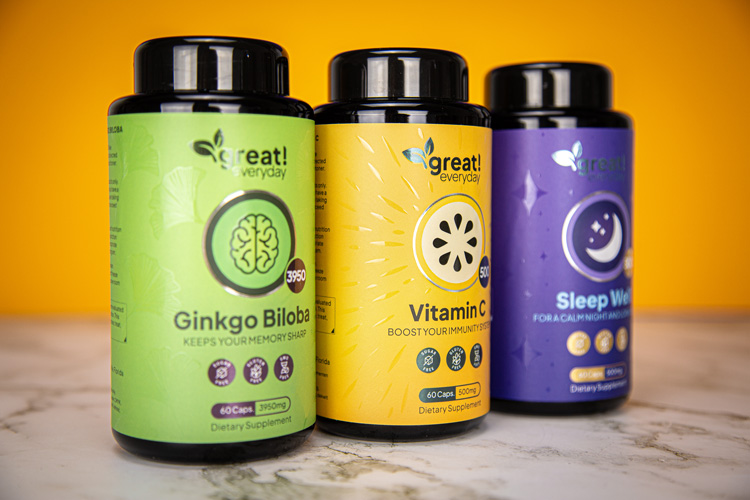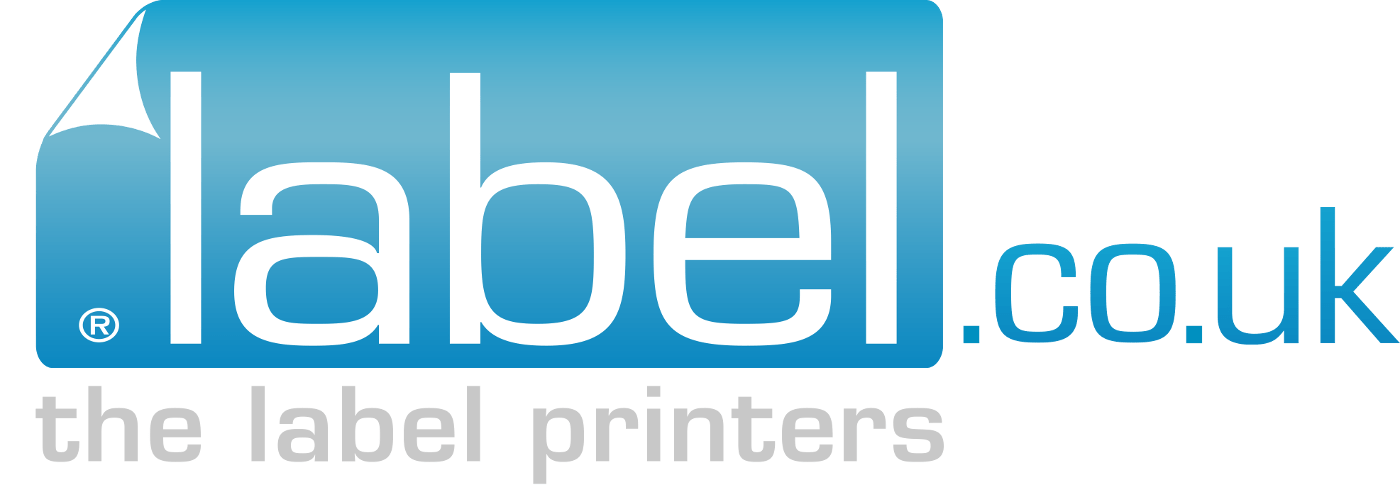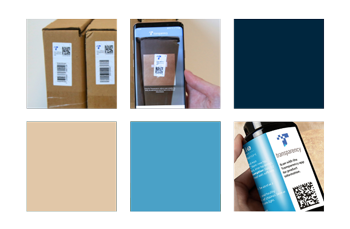Many food supplements sold in different shops and under different brands actually come from the same manufacturers. These make their products available to different companies, which then sell them under their own brand names. This practice is called white labelling. label.co.uk explain the advantages and disadvantages of this practice and explore its connection to the food supplements industry.
What Are Food Supplements?
Food supplements are capsules, powders, tablets or liquids that contain vitamins, minerals or other nutrients in concentrated form. Although they belong to the food category, they are only used as an additive that is taken in addition to regular daily nutrition. They are therefore not a substitute for a healthy, balanced diet, but merely meant to supplement it. Even if they are similar to medicines in their form and composition, there are strict regulations stating that food supplements must not have a pharmacological effect. They are therefore not suitable for treating illnesses, but only for compensating for nutritional deficiencies.

White Labelling: An Introduction
White labelling allows companies to make use of the experience and expertise of specialised manufacturers and suppliers. This means that a product is manufactured by one company and marketed by another as its own product. In the context of food supplements, this would mean, for example, that you have protein powder or vitamin C pills developed and produced by a professional and then add them to your product range. Thus, saving time and resources.
Good to know:
The terms white labelling and private labelling are often used interchangeably. However, there are significant differences. In private labelling, companies have their own idea, their own recipe, for their own product and want to see it realised under their own brand. The only work step that is outsourced here is production. All other processes, such as conceptualisation and development, are carried out by the retailers themselves. In white label practice, on the other hand, all steps from development to production can be outsourced, with the exception of sales.
Advantages of White Labelling for the Distribution of Food Supplements
White labelling is particularly profitable in the area of food supplements. Developing a formula for such products requires time, expertise and, of course, financial resources. The same applies to their production. Outsourcing these steps is therefore a cost-efficient decision for companies aiming for a quick market entry. For this reason, there is a large selection of food supplements from different brands in different shops, all of which actually come from the same production facility.
By outsourcing production and development, companies have the opportunity to focus exclusively on the sales and marketing of a product. This saves time and, above all, costs. Setting up your own production facility is a costly endeavour that not every company can afford. The principle of white labelling is therefore particularly worthwhile for start-ups and small companies. They can build up a reputation with white-labelled products while reducing investments to a minimum.
However, white labelling also has advantages for established companies. By working with so-called contract manufacturers, businesses can expand their product range without major additional expense or financial risk. In addition, the practice of white labelling allows all parties involved to specialise in one aspect of the production and sales chain, allowing everyone to work as efficiently as possible and benefit from the expertise of others.

Advantages of White Labelling for Manufacturing Companies
The white label method also offers clear advantages for manufacturers. As was mentioned above, they can concentrate and specialise on just a few work steps. As a result, companies achieve greater efficiency and can offer their customers high-quality products. In this way, the sales figures of a product are increased immensely. Instead of marketing it under their own name to a specific, limited target group, manufacturers can produce their products for a large number of different retailers and thus reach a wider audience. In addition, this practice saves the producers all the costs that would otherwise be incurred for the marketing or distribution of their products.
For contract manufacturers commissioning label printing for their customers an option for neutral shipping is particularly useful. This means that the labels ordered are sent to different delivery addresses in neutral packaging. label.co.uk offer such neutral shipping. For more information, please contact label.co.uk customer service.
Risks and Challenges of White Labelling
Now that we have highlighted the benefits of white labelling, let’s look at the risks and challenges. These primarily apply to distributors. Distributors who work with the white label method often have little control over the development and the finished product they are marketing. As a result, they risk bringing goods of potentially poor quality onto the market under their name. Retailers are dependent on the performance and reliability of their suppliers and must therefore be able to trust them when it comes to the quality of their goods. Therefore, retailers take a certain reputational risk by entrusting the manufacture of their products to a third-party supplier.
Nevertheless, the practice of white labelling is not without risks for manufacturers either. Retailers are not tied to specific manufacturers. So, if a retailer decides to purchase goods from a different producer in the future, they have to accept the loss of sales.
Best Practices in Dealing with White Labelling
The first priority for marketing white label products is choosing trustworthy manufacturers and suppliers. Convince yourself of the quality of the products you want to place on the market in the future. It is a good idea to implement regular quality checks to ensure that the products live up to you and your reputation. It is essential to regularly check the quality and compliance with certain standards, especially for products that could inflict harm if they are defective, such as food supplements.
Once you can be sure of the products’ quality, it is time to think about marketing and distribution. An appealing appearance can make all the difference between a shelf-stopper and a bestseller. If your products outwardly reflect the high quality of their insides, chances are that potential customers will take notice of your product. With an aesthetic label, you can convince buyers of your goods at first glance. Hence, choosing a professional label printing company is just as important as choosing a good production team.

Conclusion
White labelling is a widespread practice that is used in a variety of industries. Some goods are more suitable for the implementation of this method than others. For example, products that require complex design or costly production. In such cases, a specialised approach is often more profitable for both manufacturers and marketers. Since the design, production, and marketing of food supplements require a great deal of time and expertise, the white label strategy is extremely popular in this sector.
In conclusion, it can be said that white labelling is used particularly frequently in industries with complex products and in some cases offers clear advantages for manufacturers and retailers.



